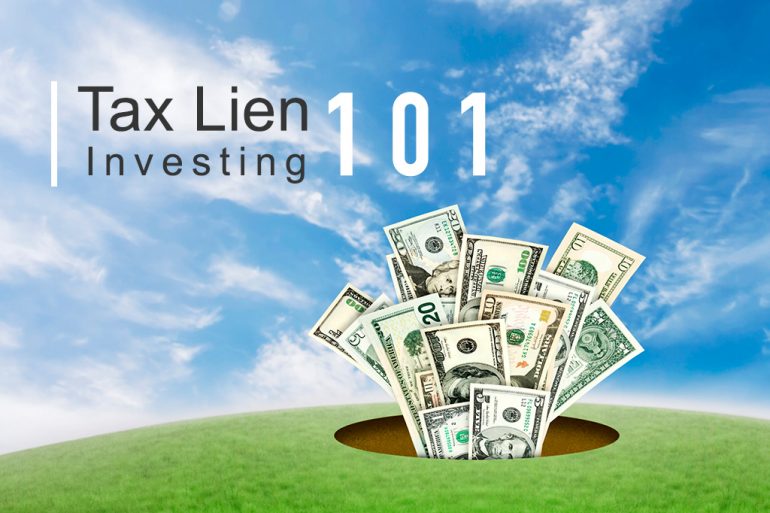Tax Lien Investing 101: Everything You Need to Know
Many of us have heard of tax lien investing through a friend or coworker, but it’s difficult to find a concrete step-by-step process on HOW tax lien investing works.
As the resident tax certificate and tax deed sales expert and the Tax Lien Professor at PropertyOnion.com Academy, I know a thing or two about tax liens. I’m going to give you an overview of how tax liens function in Florida, chat about the tax lien life cycle, and explain how tax liens relate to the deed auctions that we research.
Tax Liens Start as Property Taxes
Every piece of land (aka a parcel) has property taxes that must be paid every year. In Florida, these taxes are enforced by the county in which the parcel lies. Counties operate like businesses, and businesses need funding. Every year, counties must draw up a budget for police, fire, sewage, schools, and more.
When you take a look at your property taxes, you’ll notice that your bill is broken down into ad valorem and non-ad valorem taxes. Ad valorem taxes are based on the value of the parcel and its improvements, such as the pool you installed to make your neighbors jealous. Non-ad valorem acts more like an assessment; it’s a set tax for all of the parcels that are in a particular county.
Ad valorem taxes are expressed by something called millage, which is 1/1000th of the assessed value of a property. Counties apply taxes to a parcel based on the assessed value of that parcel and will describe each part in millage. For example, if you have a $100,000 assessed parcel, the county may give 7.1 millage to the schools and 3.4 millage to the police. Don’t worry — there’s a limit on the millage that they can apply to your property tax.
The non-ad valorem taxes are a bit easier to understand. In Duval County, everyone pays $151.80 to solid waste and $30.00 to stormwater. These assessments do not take into account the value of your home; whether you have a 30-room mansion or a tiny house, you’ll pay the same.
What Is a Tax Lien Anyway?
Thinking about skipping out on your property taxes? The county has a plan for that.
A tax lien is a way to secure money owed or debt against a parcel that prevents the property owner from selling it before the lien has been satisfied. Every now and then, I will find a property that someone tried to quitclaim or sell while there was a tax lien. These sales get a big stamp of disapproval because the tax lien has not been satisfied. The county wants to make sure that they are paid in full before the property owner is able to transfer the title to someone else. Can you blame them?
Long ago, someone brewed up a new business idea: offer these tax liens for sale to the public and transfer any fees to the lienee. In other words, they would sell the debt for a preset interest rate and term to individuals and forego any interest due to the county.
Florida offers 18% interest for two years on tax liens. The interest and additional fees are paid by the current owner. This system allows individuals to step into the role of a bank and lend money under certain terms and conditions that are preset and enforced by the county. It also puts the parcel up for collateral in case the property owner does not make good on the lien’s terms.
The tax lien system allows individual investors to receive a return on investment (ROI) similar to what a bank may charge for a credit card -not too shabby!
The counties see this as a win/win scenario. They get their property taxes sooner than they would without this process, and this system creates a real incentive for property owners to pay their taxes on time.
Here’s an example. You have bills that need to be paid. Your friend, whom you lent $1,000, can pay you $1,000 today or $1,360 in two years. Because you need it, you’re likely going to take the $1,000 dollars now. Tax lien investing can work out great for people who have money in a savings account or a 401k that they are not using and are not earning a similar interest rate return. If you ask me, that’s a fantastic deal.
GET A REAL TAX LIEN MENTOR!
Click below to begin your journey to massive passive income!
Patience Is a Virtue For Tax Lien Investing
So what happens next? Once you hold the lien on a property, you are not allowed to reach out to the property owner in any way. Your job at this point is to sit back, relax, and let the county do all of the work. If two years have passed since the issue of the tax lien and the debt is not paid in full, then you can file a tax deed application (TDA).
When the lienholder files the TDA, they initiate the foreclosure process. Remember, the county holds that parcel as collateral in case the lien goes outside the preset terms and conditions. The TDA involves two things.
Show Them the Money
First, you (the lien holder) must pay all of the property owner’s outstanding taxes on the parcel, including any interest that has accrued. This makes you the solitary tax lien holder on the property. No other tax lien holder will have a claim to the same parcel. If another tax lien holder files a TDA before you, this works in your favor — you will be paid the money that is owed to you. Don’t expect any screaming matches or cage fights; no matter the end result, the process is fair for all tax lien holders.
Second, you will have to pay a fee to the county that may be between $300 and $600. This fee initiates the TDA in the clerk’s office, and a notice will be sent to the property owner and any inferior lien holder (e.g., mortgage, mechanics lien). At this point, the clock starts counting down. The property is given a set amount of time (30-90 days) to pay all taxes owed in full, plus any interest and fees that you have paid to the county.
There is also a one-time compounding event when the money that you are owed is added up (minus county fees) and given a maximum of 1.5% interest per month. If you have a tax lien that was purchased at $1,000 and, at the time of your TDA, was worth $1,360 (two years at 18%), then you will earn 18% on the $1,360 instead of the original $1,000. In other words, don’t wait! File your TDA quickly for maximum profit.
Let’s Go to Tax Deed Auction
If the set time period elapses and your investment has not been paid back, then the county will reach out and offer to send the parcel to auction. Depending on the county, this fee can be between $400 and $1,200. The money goes to the county for advertising, the sheriff for eviction, and a few other things. Once you pay the fee, the property will be scheduled for auction (all while you are still earning interest).
PropertyOnion.com is the authority on tax deed auctions in Florida. After the property has an auction date, it will show up on our website. The deed investor can use our resources to decide if the deed is what they are looking for.
When the deed gets to auction, bidding is going to start at any money that is owed to you, the tax lien holder, which is the sum of the liens, interest, and any fees that you had to pay. If there is a bid on the deed when the auction starts, then you will get a check for everything that is owed. In the case that no one bids on the deed, the property is then deeded over to you, the original lien holder — in which case, congrats on your new property!
You’re Not an Expert Yet on Tax Lien Investing
This was an overview of the process that we call the tax lien life cycle, but by no means should you go buy the first liens that you see. Keep an eye on PropertyOnion.com for more information! We’ll continue to dive into the purchase process, what the banks have been doing, due diligence, and more so you can make informed decisions that generate great wealth and large returns.
Learn from Professor Phil 1-on-1 how to absolutely explode your income with his Tax Lien Course here.








